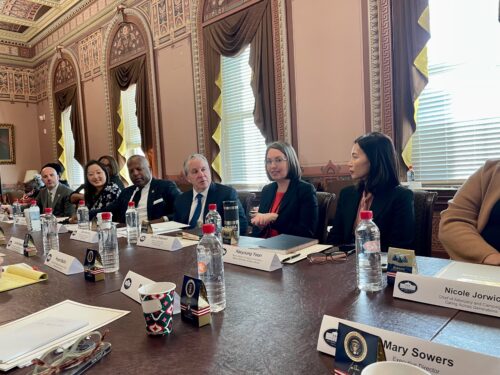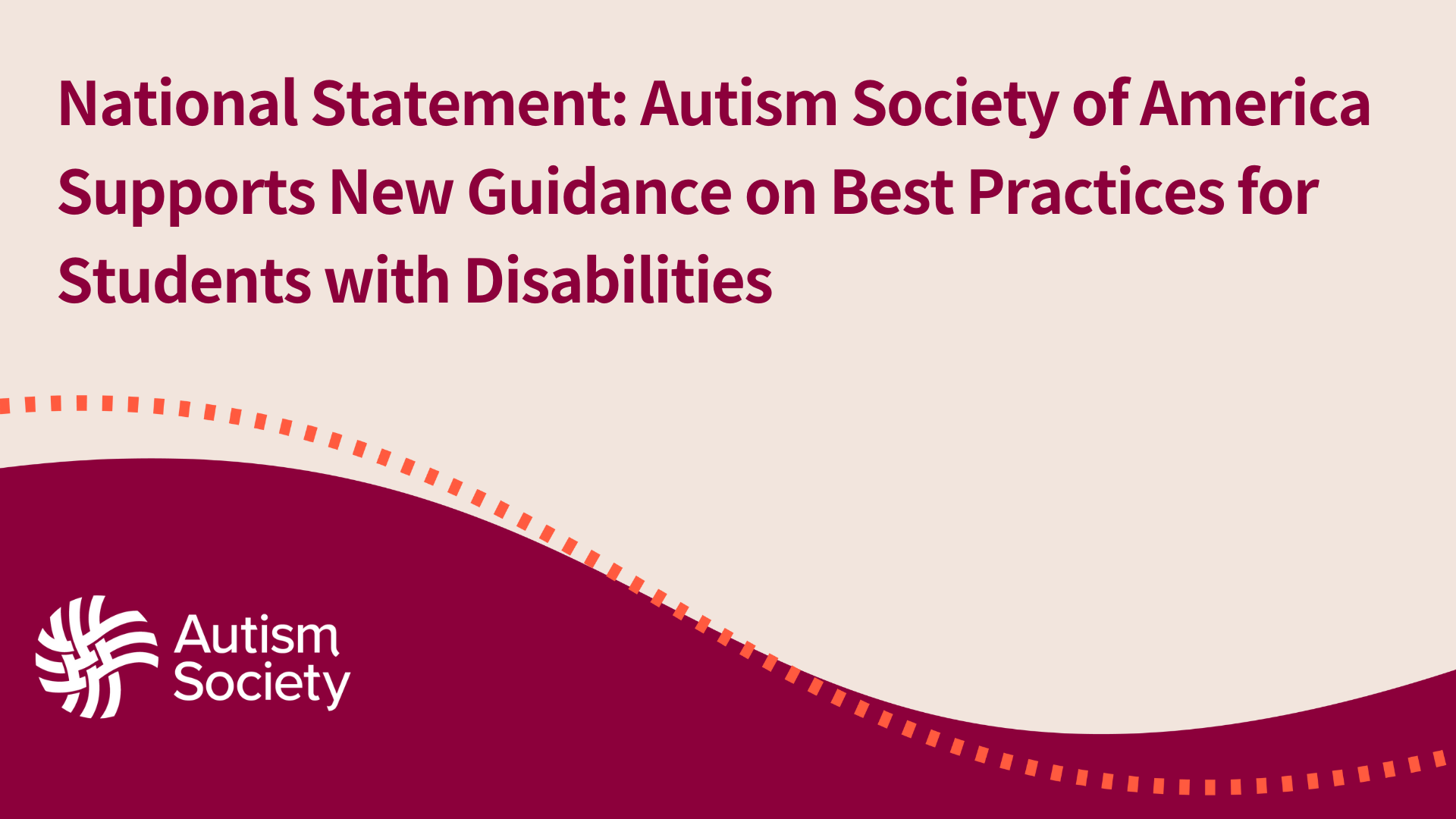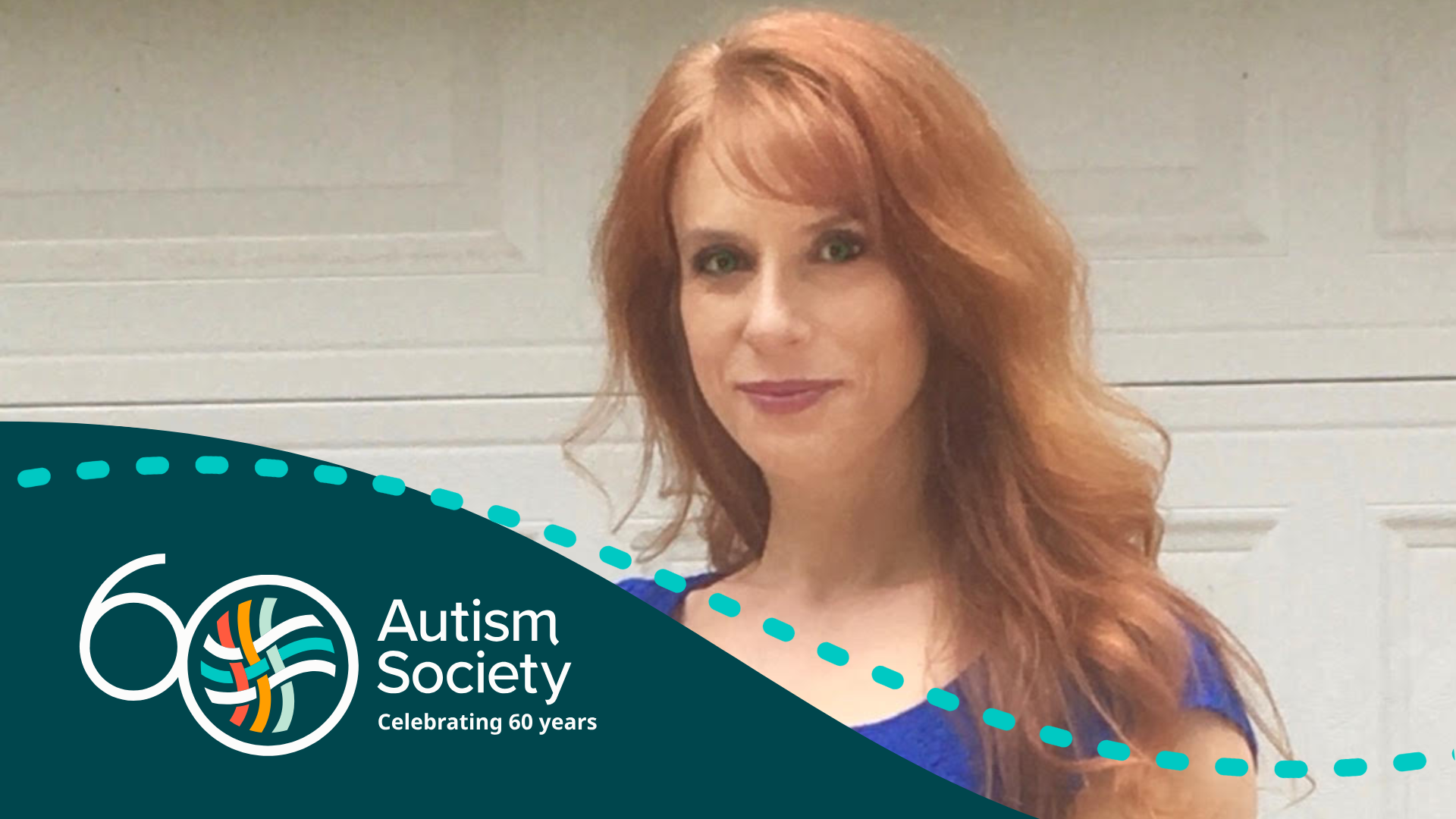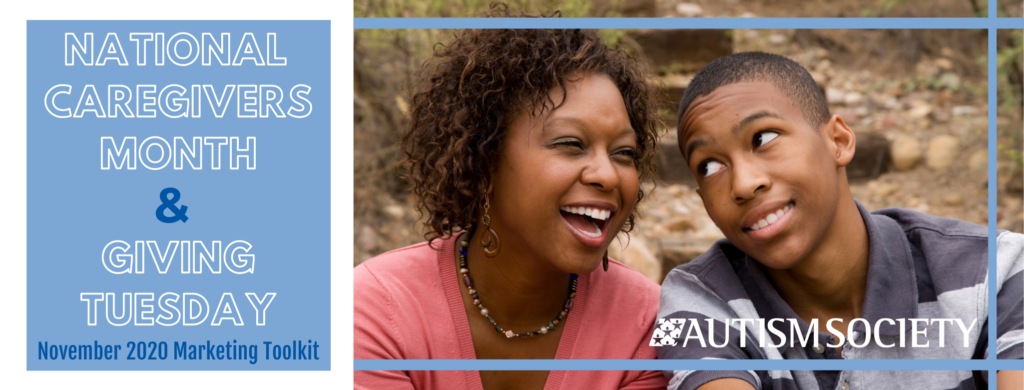
In this issue of Capitol Connection, see a White House meeting on home and community-based services, new legislation introduced in Congress, Disability Policy Seminar news, and resources to use to advocate at the local, state, and federal levels. Please use the Autism Society’s Action Center to educate your Members of Congress on legislative issues important to you and your family.
Congressional Update
Budget and Appropriations
The Congress appears ready to leave for the holiday recess next week without any of the 12 Fiscal Year 2024 appropriations bills being enacted. All government-funded programs continue to operate under a continuing resolution until mid-January. The House and Senate are still far apart on how much to spend on federal programs. There are also significant policy differences. House Speaker Mike Johnson (R-LA) recently suggested the possibility of passing a year-long continuing resolution. However, a year-long CR (Continuing Resolution) would trigger across-the-board cuts in spending that could lead to up to ten percent for some domestic programs. We believe these types of cuts could be devastating for health, education, employment, and support services on which people with Autism and their families depend. The Autism Society will continue to advocate for the passage of funding bills using regular order and to fund programs that support individuals with Autism and their families.
Water Safety Legislation
The Virginia Graeme Baker Pool and Spa Safety Reauthorization Act (H.R. 5202) was voted unanimously out of the House Energy and Commerce Committee on December 6. The bill is led by Rep. Debbie Wasserman Schultz (D-FL) with strong bipartisan support. This bill reauthorizes a swim safety grant program. An amendment to the law allows non-profits, such as the Autism Society, to apply for the grants. The policy team will continue to monitor this bill as it moves to the House floor and through the Senate.
Emergency Planning Bill
Representative Molinaro (R-NY) introduced the Think Differently About Emergencies Act, H.R. 6249 along with Representatives Titus (D-NV), Carbajal (D-CA), and Norton (D-DC). This bill would require the Federal Emergency Management Agency (FEMA) and the Government Accountability Office (GAO) to commission a report on the assistance and resources available to individuals with disabilities and their families who are impacted by major disasters. This bill quickly passed the Committee on Transportation and Infrastructure. The next step is for the full House to consider.
SAVE the DATE! Disability Policy Seminar
The annual Disability Policy Seminar, sponsored by The Arc, Autism Society, American Association on Intellectual and Developmental Disabilities, Association of University Centers on Disabilities, National Association of Councils on Developmental Disabilities, Self Advocates Becoming Empowered, and United Cerebral Palsy has been scheduled as a fully in-person event taking place in Washington, D.C. April 8-10, 2024. The event will feature two days of intense learning with the third day dedicated to meetings with Members of Congress. The Seminar is a great chance to learn more about current disability policy and network with colleagues nationwide. Visit the webpage to learn more.
Administration Updates
White House Event on Home and Community-Based Services
The Autism Society of America was invited to a White House roundtable discussion on December 12 about Medicaid home and community-based services (HCBS). Senior White House Advisor, Gene Sperling stated that the American Rescue Plan Act (ARPA) resulted in $37 billion in additional funding to increase the capacity of HCBS and to hire and retain direct support professionals. He said this was a down payment. The Biden Administration will continue to support significant funding to ensure a robust and quality service system. Participants also discussed the need to pass critical legislation to continue the increase that ARPA provided. This includes the HCBS Relief Act, recently introduced by Senator Bob Casey, which would continue a ten percent increase in the federal Medicaid matching funds for HCBS. Please see the White House fact sheet and a statement released by Senator Casey following the event for more details. Continue to educate Members of Congress about the need to pass this bill using the Autism Society’s Action Center.
The roundtable was followed by a White House panel streamed live on the same subject. The panel includes White House officials, governors, direct support professionals, and those who are supported by them.

Gene Sperling (WH Advisor) and Rachel Patterson (Domestic Policy Counsel) discuss the impact of the American Rescue Plan funding for HCBS and the need for more.
On the same day, the Biden Administration released guidance on developing and maintaining direct support worker registries. This Informational Bulletin reminds states and stakeholders that the use of worker management platforms, often called registries, is an important strategy for ensuring that individuals receiving Medicaid-covered home and community-based services (HCBS) have awareness of and access to qualified workers who deliver services. The bulletin offers best practices states for using registries to increase quality and to facilitate recruitment and retention of qualified direct support professionals (DSP).
CMS also released updated data on how the American Rescue Plan funding is being used to enhance states’ capacity to provide HCBS. This data can be used to advocate for using ARPA funds to end waiting lists and increase wages for DSPs, among other options.
HHS Report to Congress on Autism Supports
The U.S. Department of Health and Human Services (HHS) released the 2022 HHS Report to Congress on Supportive Services for Individuals with Autism. This report was requested by the U.S. House of Representatives Committee on Appropriations at the urging of the Autism Caucus leadership. The report outlines federal support and services dedicated to Autistic individuals and their families. The report identifies needs and opportunities for strengthening services in several key areas, including systems navigation tools and services; waitlists; transition to adult services; service delivery; addressing workforce shortages; services for older adults; addressing co-occurring health physical and mental health conditions; strengthening the evidence base for the benefits of supportive services; as well as racial, ethnic, and geographic disparities in access to quality autism services and care. This report can be used to advocate for gaps in services.
Commissioner of RSA
On December 6, 2023, the U.S. Senate confirmed Danté Quintin Allen as Commissioner of the Rehabilitation Services Administration (RSA) at the U.S. Department of Education. The RSA provides support to state vocational rehabilitation agencies to ensure individuals with disabilities have opportunities to engage in employment. Before confirmation, Allen had been serving as executive director for CalABLE. A full-time wheelchair user, Allen is a well-known advocate for disability rights and equity. See the Department of Education’s statement for more information.
New Guidance to Vocational Rehabilitation
The U.S. Department of Education published new guidance warning state vocational rehabilitation agencies (VRA) that they need to provide more than minimal services to help people with disabilities gain employment. The technical assistance circular sent to VRA’s on October 31 states that agencies should make changes to promote “meaningful and sustained engagement” in the vocational rehabilitation program. Recommendations are provided to VRAs to improve their service delivery.
HHS and Department of Ed Statement on Early Childhood Education
The U.S. Departments of Education and Health and Human Services (HHS) released a joint policy statement on November 28 supporting the inclusion of children with disabilities in early childhood programs. It reminds states and local agencies that students with disabilities must be included in Head Start, childcare, preschool, and public schools to increase early learning opportunities as mandated by the Individuals with Disabilities Education Act. The statement provides recommendations and highlights best practices across the country.
NCD Report
The National Council on Disability released its annual report to the President on the topic of economic security. The report covers barriers that inhibit individuals with disabilities from achieving economic independence such as asset limits, benefit cliffs, social security limits, and work requirements. Different work initiatives are highlighted for the positive benefits they have brought such as the move toward competitive integrated employment, the increase in pre-employment and transition services, and the Workforce Innovation and Opportunity Act. However, with asset limits and different work requirements, employment programs can be unattainable. The report provides a set of comprehensive recommendations intended to enable individuals to build savings and achieve more financial security.
Additional Resources
Fiscal Mapping for State Childhood Programs
Children’s Funding Project has released its first 14 state fiscal maps. These maps analyze how states spend on different children’s programs. Advocates can review and analyze these maps to see what percent of spending was spent on children and specific programs such as special education, health services, workforce development, and more. This can reveal different gaps within spending that can be used to advocate for better outcomes.
Report on Direct Support Worker Shortage
The Bipartisan Policy Center released a comprehensive report on the direct support workforce shortage. The report discusses the importance of direct care workers, why the shortage exists and how it affects the nation, and what the Federal Government can do to resolve the issue. Countless recommendations are provided but they are all grounded in increasing supportive work environments to increase retention, improving workforce programs and options for immigrants to enter the field, and optimizing data collection. The Bipartisan Policy Center also recommends allowing caregivers to be paid or supported in other ways.
Report on HCBS Waitlists
The Kaiser Family Foundation released new data regarding HCBS services and waitlists. They found that from 2016-2023, waitlist numbers have barely changed with about 700,000 individuals consistently waiting for services across the country. A strong majority of individuals, or about 70% of people on the waiting list have intellectual or developmental disabilities and are not screened before getting on the waitlist. States that do screen have a slightly shorter waiting list. One positive finding is that the average waiting period has decreased from 45 months in 2021 to 36 months in 2022.
Justice Corner
ADA Supreme Court Case Update
In a victory for the disability community, the U.S. Supreme Court chose not to issue an opinion in a case involving whether the Americans with Disabilities Act (ADA) allows “testers” to bring civil suits against businesses to enforce Title III of the ADA, which requires businesses to be accessible. The ADA rendered the case ‘moot’ meaning it found no reason to issue an opinion on the particular facts of this case. The case, called, Acheson Hotels, LLC v. Laufer, involved a hotel (Acheson) that allegedly failed to adequately describe the accessibility of its facilities on its online reservation system, thereby denying a disabled tester (Laufer) information and opportunity available to non-disabled people and causing her to experience harm.
The disability community was concerned about an adverse decision from the Supreme Court. A bad decision could have affected one’s ability to bring a claim under the ADA for situations like attempting to make hotel reservations online, but being unable to verify that rooms and common areas were accessible.
Share:





